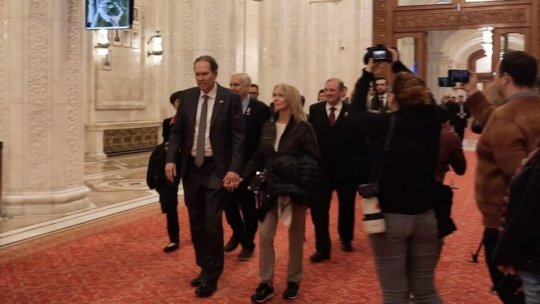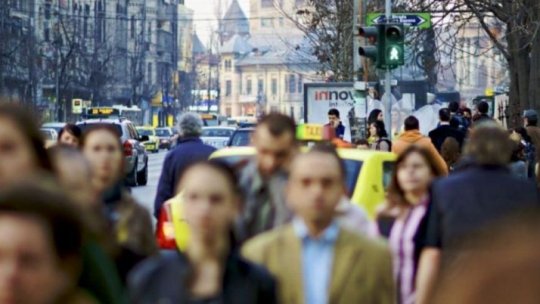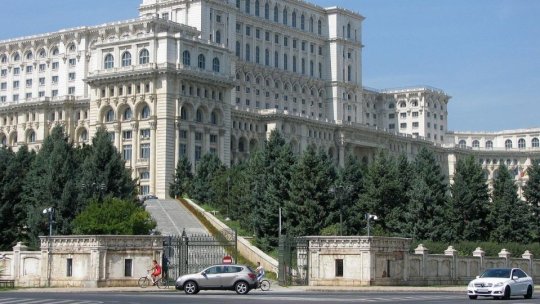Financial Press Review, February 9
Articles from the dailies Ziarul Financiar, Curierul Naţional and Adevărul.

Articol de Dinu Dragomirescu, 09 Februarie 2011, 19:37
Today’s Ziarul Financiar opens with an article on the new arrangement with the IMF, entitled ‘“Franks M.D.”: The patient is stable, the challenge is to resume growth.’ The article reads: ‘After breaking its own rules in 2009 by directly financing Romania’s budget deficit, the IMF is now openly taking it upon itself to bring the economy back on growth.’
After two years of tailoring the Romanian economy, the IMF official is already talking like a Prime Minister and announces in Romanian what is to happen in the time that comes. (…) Even though he is not a politician, Mr. Franks doesn’t forget about optimism and says that the second half-year might bring lower social contributions’ and that there will not be any more layoffs.
‘But, since he is not a politician at heart, he doesn’t risk and guarantee that Romania will overcome the crisis this year, like authorities rushed to declare’. Under the headline ‘Romania is ready for another two years of IMF therapy,’ the same daily reads, quoting Istvan Szekely, country director at the European Commission, that ‘it’s time Romania focused on structural reforms’.
‘IMF officials claim thorough reforms in power and transport state companies,’ an article in the Curierul Naţional entitled ‘State companies, a burden for economy’ also reads. ‘These companies’ arrears represent 5 percent of the GDP, which amounts to 6 billion euro. Unpaid bills prevent the economy from growing,’ the daily points out.
‘A positive figure for the economy is vital this year,’ Adrian Vasilescu writes in the Ziarul Financiar.
‘Normally, the state’ – owner of these enterprises used to reach in the pocket of the budget to survive - ‘should be clear: they either mould after the competition and competitiveness, or they go bankrupt. This only happens in special cases. The state-owner is confused: it doesn’t give enterprises with losses money to cover up their inefficiency, but it doesn’t throw them in the deep waters of the market and the competition so that they learn how to swim either’. The solution is in restructuring in the real economy, Adrian Vasilescu concludes.
Under the headline ‘Here comes bribe on Siret,’ the Adevărul prints an article where the author, Mircea Vasilescu, editor in chief at the Dilema Veche, writes that the multiple arrests at the customs with countries outside the EU of the past days ‘done in the twelfth hour’ resemble Ceauşescu’s desire to fulfill the five year plan before the deadline’.
But, the author continues, ‘a true state of law observes the law every day and in every situation, not just “from time to time” and “only in some cases”’. (…) The way bribe flows in our customs is old news. Politicians from the countries that oppose our joining the Schengen definitely knew about it. (…) I’m afraid our last minute hype cannot impress anyone. (…) The corruption in Romania cannot be wiped off by a wave of last minute arrests’.
Under the headline ‘Mayhem in Serbia customs,’ the Ziarul Financiar reads: ‘The issue is whether in these operations the leaders of smuggling networks will also be apprehended, because the scale of the operation (…) shows that this is not a strictly local phenomenon. Moreover, there are accusations on both sides’. The daily quotes Traian Igaş, Minister of Interior, who ‘claims that these actions began a long time ago and are in no way related to the fact that some countries are opposing Romania’s joining the Schengen area’.
The Curierul Naţional opens with an article entitled ‘How cigarette smuggling became good business’. It ‘goes deeper than crooked civil servants from the borders. Romanians’ buying capacity, especially that of smokers is very low, and taxes and excises are hard on them. (…) In other words, cigarette smuggling would not exist, were it not for so many ‘taxes’ on production costs, and smugglers, be it civil servants or organized crime groups, would not risk their liberty if across the Prut, for instance, cigarettes didn’t cost even ten times less.’
The Ziarul Financiar prints a detailed article entitled ‘Food prices, at their historic highest. How will this influence global economy and that of Romania?’ where it points out the ‘prices for many basic products are close of above the level of the 2007 crisis, due to the increasing demand in Asia and the recent extreme weather conditions’. Romania is not facing a food crisis, but the agriculture reforms have to be adapted to the market, Gabriel Popescu, Professor at the Academy of Economic Studies, claims.
Translated by: Gabriela Lungu
MA Student, MTTLC, Bucharest University









